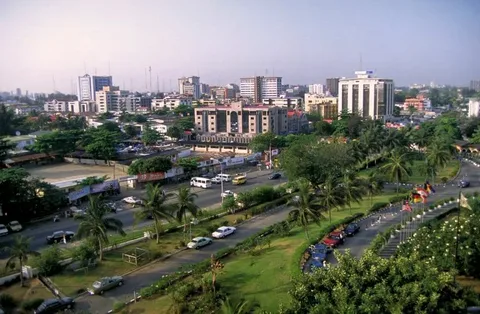Nigeria’s tourism market is gradually gaining importance as an important economic sector with high growth potential. In 2022, the country received about US$1.13 billion in tourism revenue, which amounted to about 0.24% of its GDP. At the same time, Nigeria was visited by about 528 thousand foreign tourists, with an average expenditure of US$1,972 per person. This is significantly lower than the pre-pandemic level: in 2017, for example, the number of tourists exceeded 1.9 million, and tourism revenue reached US$2.62 billion. By 2025, analysts predict an increase in tourism revenue to US$3.45 billion, and by 2030 — to US$5.58 billion. About 72% of this income will come through online channels. Hotels and restaurants are the largest contributors to the economy, with food and beverages generating $6.7 billion in 2022, or 36% of the total travel and tourism sector. Domestic tourism has been booming, especially since the pandemic, when Nigerians have begun to travel more frequently within the country. Nigeria is blessed with rich natural and cultural resources, with over 250 ethnic groups, unique historical artefacts such as the Nok terracotta art, the Benin and Oyo kingdoms. Natural attractions include the Erin Ijesha Falls, the Obudu Resort, and the Yankari National Park. The country hosts significant cultural events such as the Calabar Carnival, the Ofala Festival, and the Lagos Fashion Week. However, the sector faces a number of challenges. Insufficient infrastructure, including roads, hotels, and tourism services, limits accessibility to some destinations. Security issues also affect the perception of the country by international travelers. Nigeria’s image as a volatile region requires rebranding and promotion as a country of creativity, energy and hospitality. To overcome these barriers, measures are being taken to improve visa policies, develop business tourism infrastructure (conferences, exhibitions), and train personnel, for example through academies such as the Del-York Creative Academy. Interest in ecotourism and sustainable practices is growing. There is also a trend towards bleisure – combining business and leisure travel, especially among Nigerian travelers. Thus, with targeted investment, improved infrastructure and security, and a stronger international profile, Nigeria could become a key West African tourism destination offering unique cultural and natural experiences.
- Liechtenstein
- Istanbulkart Scams: What Tourists Should Watch Out For
- Teatime at Cape Town’s 5‑Star Mount Nelson Hotel
- Minsk (Belarus)
- Sydney
- Liberation of Belarus from the Nazis
- Weekend in Moab: Arches, Canyons, and the Spirit of Adventure
- And in Africa the mountains are this high
- Falkland Islands
- Tuareg
- Endemics of Baikal
- Nicaragua
- House of Russian-Korean Friendship Opened in Primorye on the Border with the DPRK
- Decline in international tourism to the US: causes and consequences
- Scythians
- Chukchi
- Uluṟu-Kata Tjuṯa and Kakadu National Parks Etched in Time
- Great Plains (USA)
- Lithuania
- Madagaskar











